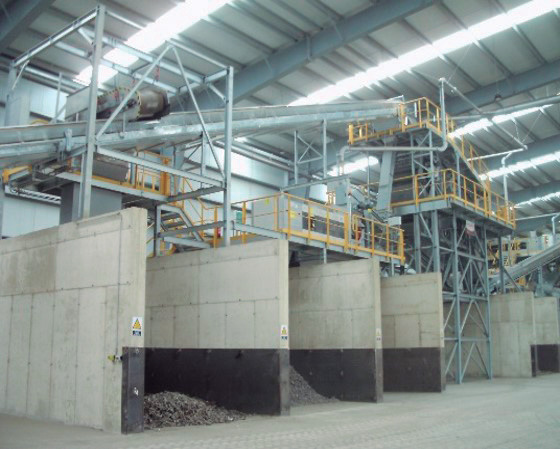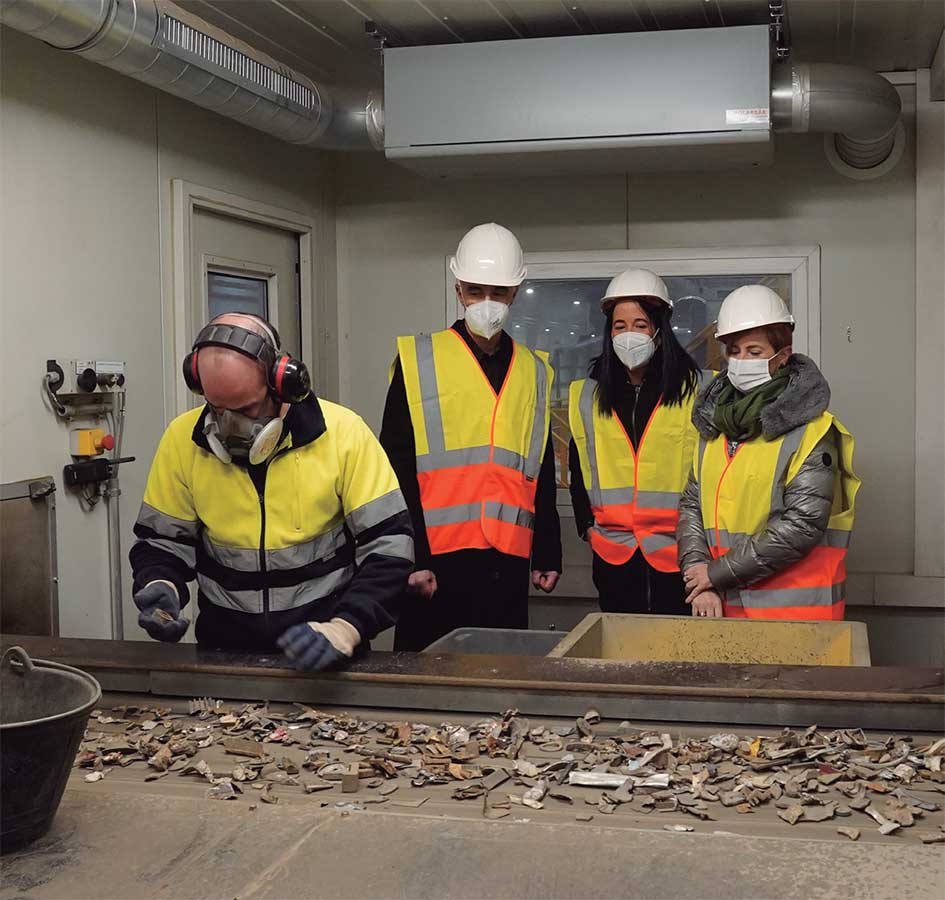Al-ReX
USING X-RAY SENSOR TECHNOLOGY FOR SORTING ALUMINIUM ALLOYS
IN THE TREATMENT OF END-OF-LIFE VEHICLES (ELV) AND WASTE ELECTRICAL AND ELECTRONIC EQUIPMENT (WEEE), a metallic aluminium fraction (Al) is obtained, which is a mixture of different casting and wrought alloys. Currently, all secondary Al alloys obtained through the recycling process are used for casting processes, mostly for Al injection moulding (HPDC), which represents a clear loss of material value. Overall, it is estimated that 6.1 Mt of wrought alloys are degraded each year in moulding products.
Demand for 6xxx series aluminium alloys is estimated to grow from 2.3 to 6.5 million metric tonnes, between 2010 and 2030. Aluminium scrap (mixed alloys) is also expected to beat the demand for casting alloys with high impurity tolerance. Over 30% of the metals processed in the EU come from recycling, although variation between metals is high and only 12% of Al comes from recycling.
REYDESA, part of the Otua Group, is a leading company in the recovery of ferrous and non-ferrous metals that manages a wide range of metal waste. Al-ReX was developed in collaboration with the Group’s R&D unit, INATEC.

DRIVING FACTOR


 OBJECTIVES
OBJECTIVES
- Overcome the current inability to perform effective separation methods on forging/moulding grades from recovered aluminium fractions.
- Obtain secondary alloys of forging and casting quality by means of X-ray separation, increasing quality and added value.
- Compare the best techniques analysed within the OTUA GROUP to separate aluminium alloys and to lead a recycling initiative for upcycling in the Basque Country.
 RESULTS
RESULTS
- Three different grades of low, medium and high Al recovered alloys were obtained through X-ray identification technology.
- Technical feasibility of the technology, which improves the results of those currently implemented.
- Savings of 565 kg in CO2e emissions per tonne of metal waste treated.
- 97.4 % reduction in aggregate impact potential (Pt), compared to the treatment considered.
 CONCLUSIONS
CONCLUSIONS
- The results enable higher specification and higher priced casting alloys to be obtained at REFIAL, the Otua Group’s aluminium alloy smelter and refinery.
- Technology implementation suffers from the variability in sample composition.
- The technology is dependent on the material granulometry, which means different production capacities and industrial schemes must be maintained according to particle size.
- The contamination found in purer aluminium streams with impurities makes it necessary to maintain a manual separation stage for impurities.
- REYDESA continues to work to complement additional separation processes to meet aluminium forging market specifications.
ENVIRONMENTAL
TECHNICAL
ECONOMIC
COMMERCIAL
ON THE MARKET


